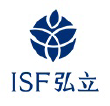UNIVERSITY GUIDANCE AND COUNSELING
Developing A Top-Tier University Application Portfolio
Gaining admission to a top-tier university goes beyond academic achievements such as excellent grades and test scores. While these factors hold significant importance, other criteria also come into play. Engaging in extracurricular activities, participating in community service, excelling in sports, working on a self-initiated/ personal project and gaining internships can all have a positive impact. A compelling college application profile helps students showcase their passions, as well as demonstrate their leadership abilities, ambition, and dedication.
A key factor in university admission outcome is the student’s ability to showcase their passion. Universities want to see if students are genuinely interested and dedicated to their chosen fields. In order for students to effectively narrating their unique stories in a compelling manner on their university applications, they need to demonstrate experiences that are genuine and shed light on their attributes, talents, interests and potential.
Participating in different courses and programs, both within and outside school can sometimes be beneficial for students. Programs such as the ISF Shuyuan courses, summer school programs, and external programs offered by universities such as the Johns Hopkins Center for Talented Youth (CTY), The Hong Kong Academy for Gifted Education, The University of Hong Kong Academy for the Talented, The Center for the Development of the Gifted and Talented at the Hong Kong University of Science and Technology, and the Program for the Gifted and Talented at The Chinese University of Hong Kong, can deepen students’ knowledge and understanding in their chosen field of study.
But how can you effectively establish the connections and tell a unique and compelling personal story to admissions through your college essays? For instance, a talented violinist who plays for the school concert band could also perform for elderly residents at a local home. Similarly a science enthusiast could run a science club to assist younger students. These are great examples to demonstrate how community service can be aligned with personal passions, allowing students to pursue what they love while making a positive impact on others, and showcasing their dedication and genuine passion to university admissions officers.
These are just a few examples of the many experiences that have contributed to past ISF students receiving successful university application outcomes. It is important to understand that all university admissions will treat every student as an unique individual when reviewing their application. With that said, there is no single formula that will work for all students; an experience that highlights the student’s personality may not have the same impact for another student.
How Does The UGC Support Students In Building A Competitive University Application Portfolio?
Together with the student’s UGC counselor, the student will learn how to develop a competitive application portfolio that gives them the best chance at gaining admission to their chosen institutions. It can be an overwhelming process for some students when it comes to crafting this portfolio. We encourage parents to play a supportive role and have open and honest conversations with their child about post-secondary plans in relation to interests, personality and goals. This approach allows students to maximize the level of support offered to them – from UGC and parents – without overwhelming themselves.
Inline with the UGC curriculum, parents can work with their child to begin to think about future education and career plans as early as Grade 6 by utilizing the UGC Grade 6-8 Optional Family Curriculum. As the student’s emotional and academic maturity and self-awareness solidify, so will their capacity to engage in academic and non-academic commitments develop. In the Grade 9 UGC curriculum, students will be exposed to the different university systems ISF students apply to and their expectations. Throughout Grade 9 to 11, students will learn how to build an applicant profile that aligns with the universities they are considering in UGC classes and in UGC meetings with the student’s UGC counselor.
